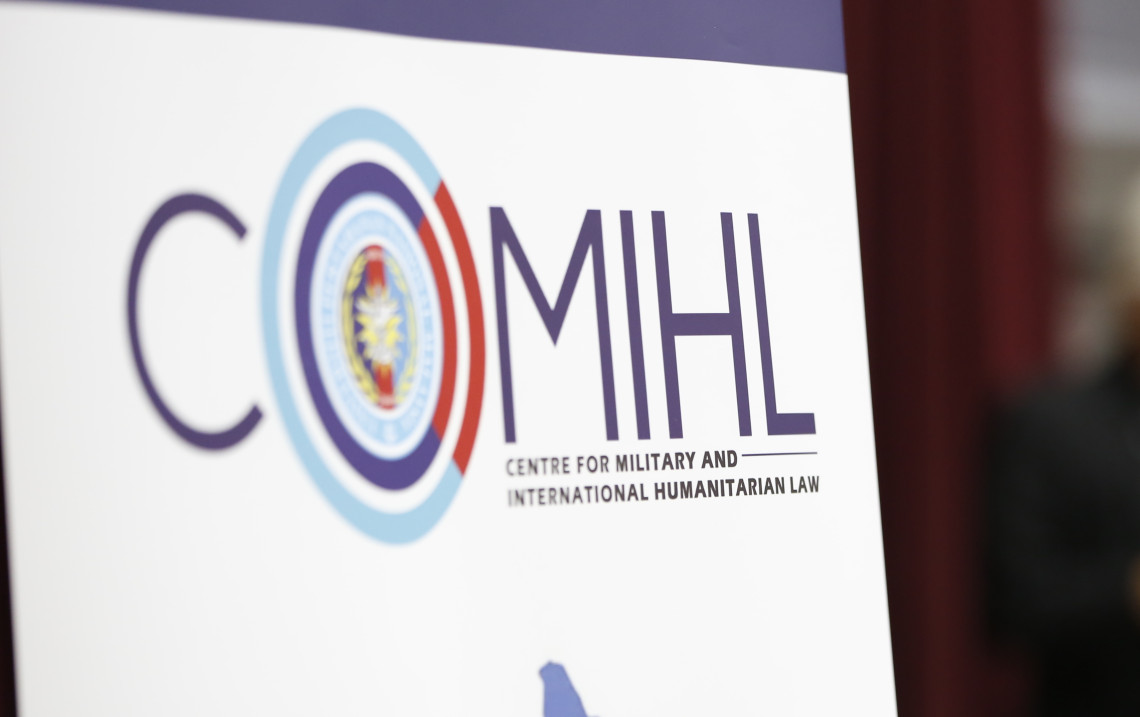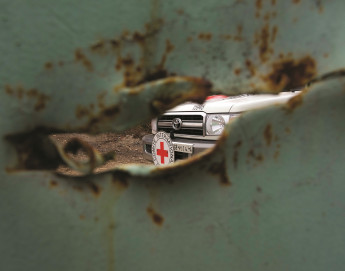
Malaysia: Course explores humanitarian law and counterterrorism in 21st century

Terrorism has become a global phenomenon of growing concern to all as it is increasingly witnessed in both conflict situations and during peacetime. Acts of terrorism are often perpetrated against civilian populations with the singular aim of spreading fear.
Within an armed conflict setting, terrorism is prohibited by international humanitarian law (IHL) through the Geneva Conventions and their Additional Protocols.
Acknowledging the humanitarian consequences of terrorism, the Centre for Military and International Humanitarian Law (CoMIHL) at the National Defence University of Malaysia (NDUM) and the International Committee of the Red Cross (ICRC) jointly organised a course on "International Humanitarian Law on Terrorism and Counterterrorism" from August 11 to 13. This was the second series of the course that was started in 2019.
More than 100 participants, including senior officers from government, military and security agencies, joined the three-day course. They represented nine countries comprising Malaysia, Philippines, Brunei Darussalam, Singapore, Romania, Indonesia, Germany, Laos and Thailand.
Speakers, including academics and professionals from universities, humanitarian organisations, military and police agencies, among others, unpacked concepts and the underlying legal principles of international crimes of terrorism, both nationally and internationally.
They also explored relevant treaties that prosecute acts of terrorism nationally and internationally, and interdisciplinary perspectives of terrorism and counterterrorism.
According to Principal Assistant Director of the Royal Malaysia Police, Bukit Aman Special Branch Counterterrorism Division (E8) Deputy Commissioner of Police (DCP) Normah Ishak, counterterrorism is a collection of measures designed to detect, prevent and mitigate damage caused by acts of terrorism that include the military, police, border and infrastructure security, civil defence, medical readiness and psychological preparedness.
Speaking on the Malaysian experience, DCP Normah said several provisions in domestic law have been enacted to combat terrorism and its threats, particularly the Security Offences (Special Measures) Act 2012.
She also emphasised the collective and practical nature of Malaysia's counterterrorism efforts owing to cross-agency cooperation at the national level and cited the example of deradicalisation programmes that combine with family therapy and support to encourage critical thinking among prisoners as a safeguard against propaganda.
"Even during the COVID-19 pandemic, the online deradicalisation programme has continued. Our teams also provide education support and school uniforms to the children of these families," she said.
"It is important that we do not abandon the family of the radicalised person in prison [who is] undergoing the programme."
Commenting later, CoMIHL Director Colonel Jamal Rodzi Dahari (retired) said the course offered participants a platform to share knowledge on current terrorism and counterterrorism challenges in their own countries.
"While the first series focused on cyberterrorism, the second was designed to help participants understand the fundamental principles that underpin international instruments and institutions in dealing with the complex subject of terrorism," he said.
Azlan Iskandar Abdul Ghani, a Military and Armed Group (MAG) delegate with the ICRC, emphasised the continuing relevance and need for studies and discussions on terrorism.
Azlan, who was first exposed to the subject during his time serving the Malaysian Armed Forces (MAF) in both operational and legal staff officer capacities, said it was more than 10 years ago when he underwent counterterrorism training in the US and completed his Master's in policing, intelligence and counterterrorism on a government scholarship.
"I thought that terrorism studies would have died a natural death with the passing of Osama bin Laden," he said. "But the rise of the Islamic State group in 2014, as well as major global operations to address the challenges of terrorism, continue to make my knowledge of this field relevant in my career in the MAF, first as a lecturer at NDUM and later as head of Strategic Studies and International Relations at the Malaysian Armed Forces Defence College."
"Little did l know that when l embarked on a second career with the ICRC as MAG delegate, my knowledge of terrorism studies would continue to be applied, albeit within a humanitarian movement context."
Moving forward, the CoMIHL will continue engaging with different parties and developing opportunities that increase awareness of IHL among military personnel, academics, law enforcement officers and civilians.
"We will continue to collaborate with the ICRC, particularly in conducting research in relation to protection, urban warfare, state's responsibility and contemporary issues in application of IHL," said Colonel Dahari. More than 56 percent participants rated the course as "excellent" in the online feedback.
CoMIHL plans to organise a third series of the course in 2022. For more information and updates, refer to the CoMIHL website.


